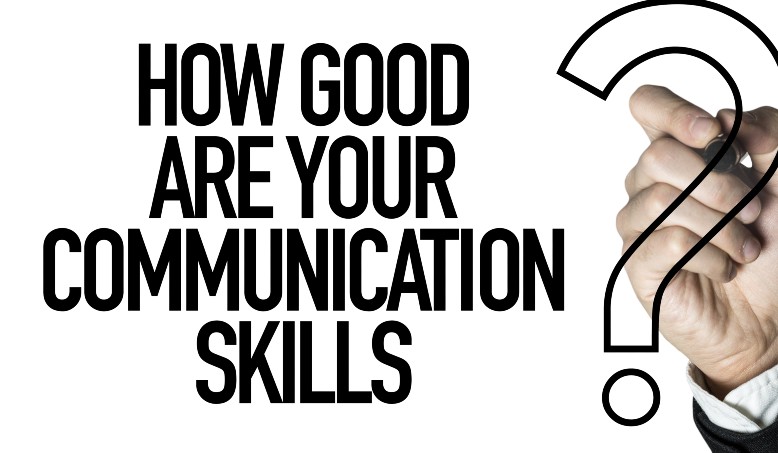Effective communication makes the difference between success and failure
The secret to success (and, the path to failure) is never that black and white. However, there is one critical leadership skill that can make the difference of whether a project, plan, or business sinks or swims.
Effective communication is what your project needs to win the business Olympics. So, whether you’re building an app or starting your own marketing business, this is a leadership skill you’ll want to continually build on. Everything from how the team talks with one another. How you share your vision and progress. It all counts.
What are communication skills?
You’ll have seen a variation of this on a job advert before: ‘must be able to expertly communicate with colleagues at all levels’. It’s clear that the job poster is talking about communication skills. Though, if you unpick the request further it means at least three things.
- Who you communicate with. So your peers, stakeholders, directors, clients, etc.
- What you communicate–and how much detail. Anything from project progress to eCommerce reporting–depending on your role and/or industry.
- The frequency with which you communicate. This will also vary by team, company, and boss. For example, one boss might only need occasional check-ins. Another boss might want or need more regular updates.
How to improve your communication skills
1.Listen to others
People often plan their response before the person speaking has finished doing so. Try and train yourself to listen much harder.
2. Keep a check on your body language
Do you cross your arms when someone’s speaking? You could give off a feeling of putting barriers up. Do you slouch? A strong, straight posture commands attention. Non-verbal communication can give away a lot more than you think. It’s also a really good way of reading others’ reactions.
3. Tailor your communication to your audience
Business jargon – acronyms, abbreviations etc – might be okay internally. However, if someone in the team is new, or you’re talking to someone outside the business you’ll need to rethink.
Your degree of casualness is also something to consider. For example, how you greet or communicate with a Director may differ from how you speak with the person you sit next to every day. This applies to interviews and the tone of voice you use in your written communication too. Think about how different you say things at the interview to how you might chat amongst friends at a bar. It’s different. Recognize the different communication needs of each environment. It’s a great way to work out what works best, where.
Emails, texts, and, in particular, instant messaging can bring communication challenges. If you feel your words are too casual an email, text, or message–they probably are. For example, it’s always better to say ‘Hello’ rather than ‘Hey!’ in a text or email if you’re unsure.
4. Have a strategy for office communication tools
Think about how you can best use email and instant messenger. And, of course, who you contact on which channel might be something to consider too. A boss might be more traditional and expect an email over an instant message–or the other way around.
Often, instant messaging platforms, like Slack, are good for quick questions. You might use email more for handing over deliverables or following up with new clients. Communicate with others to see if there’s a way your business or team uses the different channels. If not, you’ve got free range to use them as work for you best. Don’t forget–sometimes it’s just better to pick up the phone.
5. Take better notes
Live notes—where you write down exactly what people say in a meeting is a great way of remembering what people said. Yet, they’re quite cumbersome to re-read and it can be hard to keep up typing as fast as people speak or switch topics.
But… do write things down! Everyone is busy juggling multiple tasks. Jot down short, action-based notes so you don’t forget anything. Use bullet points. Actively asking for a summary and confirmation of actions at the end of meetings is good practice too.
6. Honest communication wins in tricky situations
Business isn’t business without a few plot twists and difficult decisions. A number of important communication skills will help you navigate challenges, particularly:
- Honesty
- Professional
- Treating others as equals
Let’s look at a couple of real-world examples where these apply.
- Conflict within teams. You might find that you’re the person in the middle, or are the manager looking for creative solutions. Communicating in an open, professional way is a must in either situation.
- You find yourself with multiple job offers. First, what a great position to be in. Yet, it can be overwhelming deciding what to do, especially when you feel the need to be prompt in replying to hiring managers. Chatting to friends and family and making a list of pros and cons for each offer will help. The important thing, when you do reach a decision, is to communicate this with honesty, diplomacy, respect, and gratitude for each offer.
Hult can help build expert communication skills and more
At Hult, communication is part of your curriculum. Depending on what you study, you’ll learn to communicate cross-culturally, with stakeholders and peers. Effective communication really does make the difference between a successful project and a failed one; between a happy team and a miserable one. Is your manager angry or passionate? Is your teammate shy or confused? Will your investor respond better to stats or stories? A lot depends on culture. Every project you work on at Hult will depend on you overcoming these communication challenges to achieve results.



